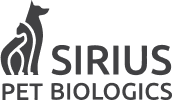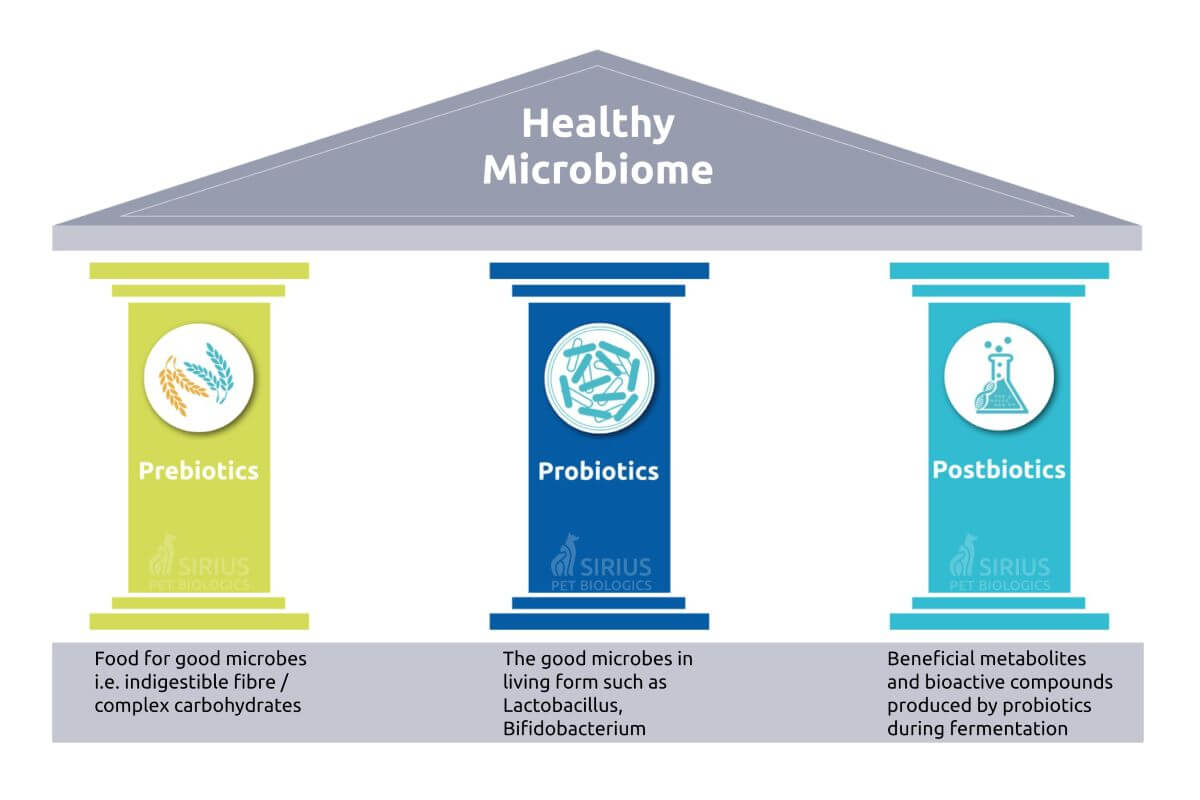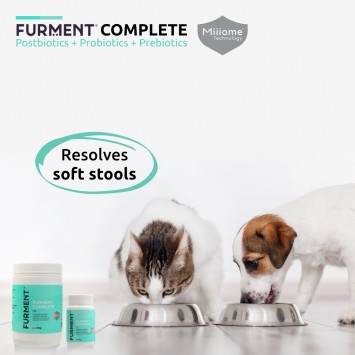Fixing Soft Stools Issues with Prebiotics, Probiotics and Postbiotics Supplement
Soft stools in companion animals are quite a common occurrence. Some are pretty straight forward to resolve, but some can be persistent.
No matter what, no pet owner likes to deal with soft stools.
Soft stools can be caused by various factors, and it’s important to identify the underlying cause to address the issue appropriately.
Some potential factors for soft stools in companion animals:
Ageing
- Age-related shift in the gut microbiome affects stools consistency.
Diet
- Abrupt changes in pet’s diet not only it can lead to digestive upset. Studies have shown significant difference in the canine fecal microbial diversity and composition, metabolite profiles, and microbial functions on kibble diet, high fibre diet supplementation, or protein-rich canned diet after an abrupt dietary change in healthy adult dogs.1
- Ensuring a balanced and appropriate diet is essential for supporting digestive function but this is often overlooked by some pet owners. Dogs fed natural food have different fecal metabolites or gut microbiota composition versus dogs fed commercial food.2
- Food allergies: look out for type of food or ingredients your pet may be sensitive or allergic to.
- Ingestion of inappropriate or unfamiliar substances can cause gastrointestinal upset. Keep away certain human food, plants or garbage that your fur kid may try to get into.
Diseases
- Problems with the chronic kidney disease, liver disease, pancreatitis, can affect digestion and lead to soft stools.
- Irritable Bowel Syndrome (IBS) may lead to both soft stools and diarrhoea.
Infections
- Intestinal parasites, such as worms or Giardia, can lead to soft stools
- Infections, such as bacterial or viral gastroenteritis, not only can cause soft stools but also acute diarrhoea.
Medication
- Certain medications like antibiotics, anti-inflammatory drugs may lead to your pet having soft stools, and diarrhoea.
Stress
- Companion animals are very sensitive toward change in the environment. Stress and anxiety from this situation can easily result in digestive issues including soft stools and diarrhoea. These circumstances are sadly true and commonly found in plenty of rescued animals.
- Lots of dogs and cats are easily terrified by the sound of thunder.
These are not the entire list of causes, but they are the usual suspects.
In cases of soft stools in companion animals, one fundamental occurrence that is certain is imbalances in the gut microbiome, also known as dysbiosis.
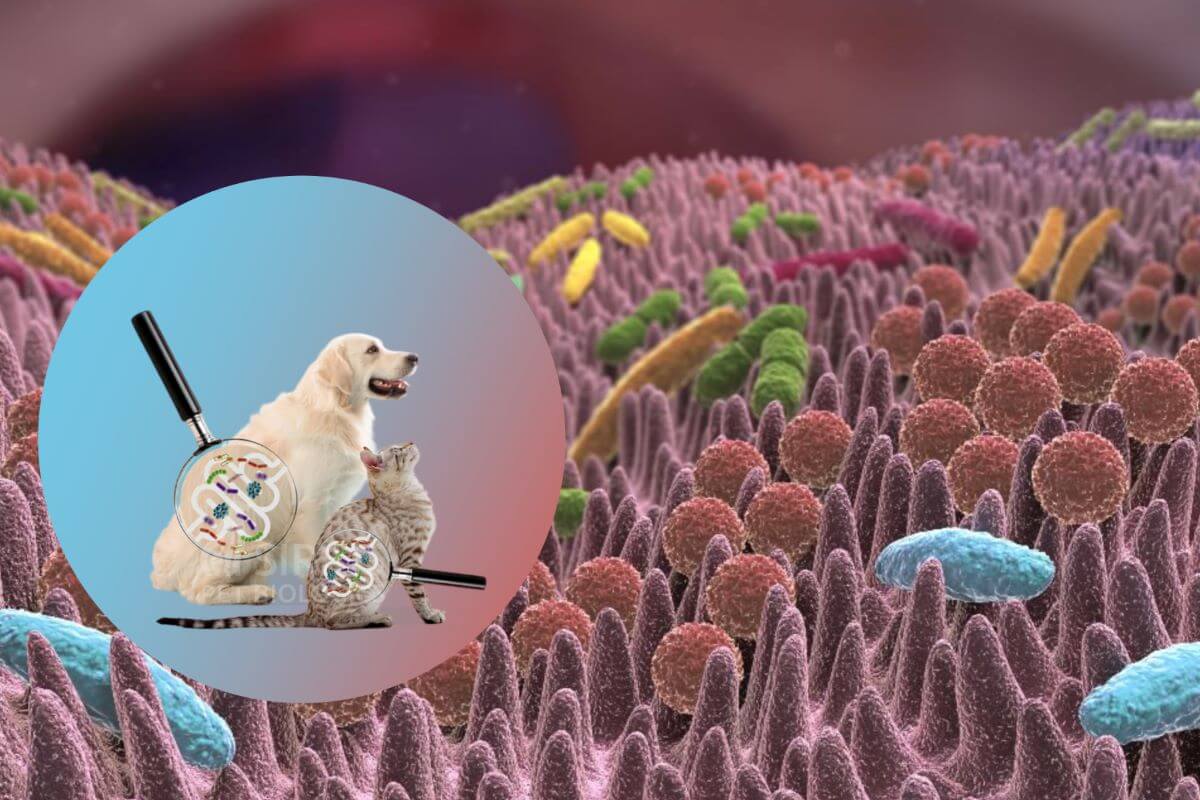
The gut microbiome of companion animals, including dogs and cats, is a complex ecosystem of living microorganisms (such as bacteria, viruses, fungi, archaea and protozoa), genetic materials and essential metabolites, playing a vital role in digestion, nutrient absorption, immune regulation, and overall well-being.
The gut microbiome may fluctuate at different times of the day.
The gut microbiome may fluctuate at different times of the day.
Probiotics are defined as “live microorganisms that, when administered in adequate amounts, confer a health benefit on the host”. Essentially they are beneficial microbes that include good bacteria, and yeast that help improve or restore the gut microbiota.
Prebiotics are non-digestible fibres that act as foods for probiotics to promote their growth. Inulin, fructo-oligosaccharides (FOS), and galacto-oligosaccharides (GOS) are some of the more common types of prebiotics.
Postbiotics are the beneficial metabolites or metabolic by-product produced by probiotics during fermentation of dietary fibres. These beneficial compounds that comprise of short-chain fatty acids (SCFA), bacteriocin, organic acids, vitamins, exopolysaccharides, enzymes, peptides, cell wall components, contribute to a healthy gut microbiome, provide a multitude of health benefits such as improving acute/chronic diarrhoea, immune function, allergic reactions, treat or prevent many diseases including neurodegenerative diseases.5
FURMENT COMPLETE powder is a comprehensive gut microbiome formula consisting of all three: prebiotics, probiotics, and most importantly postbiotics.
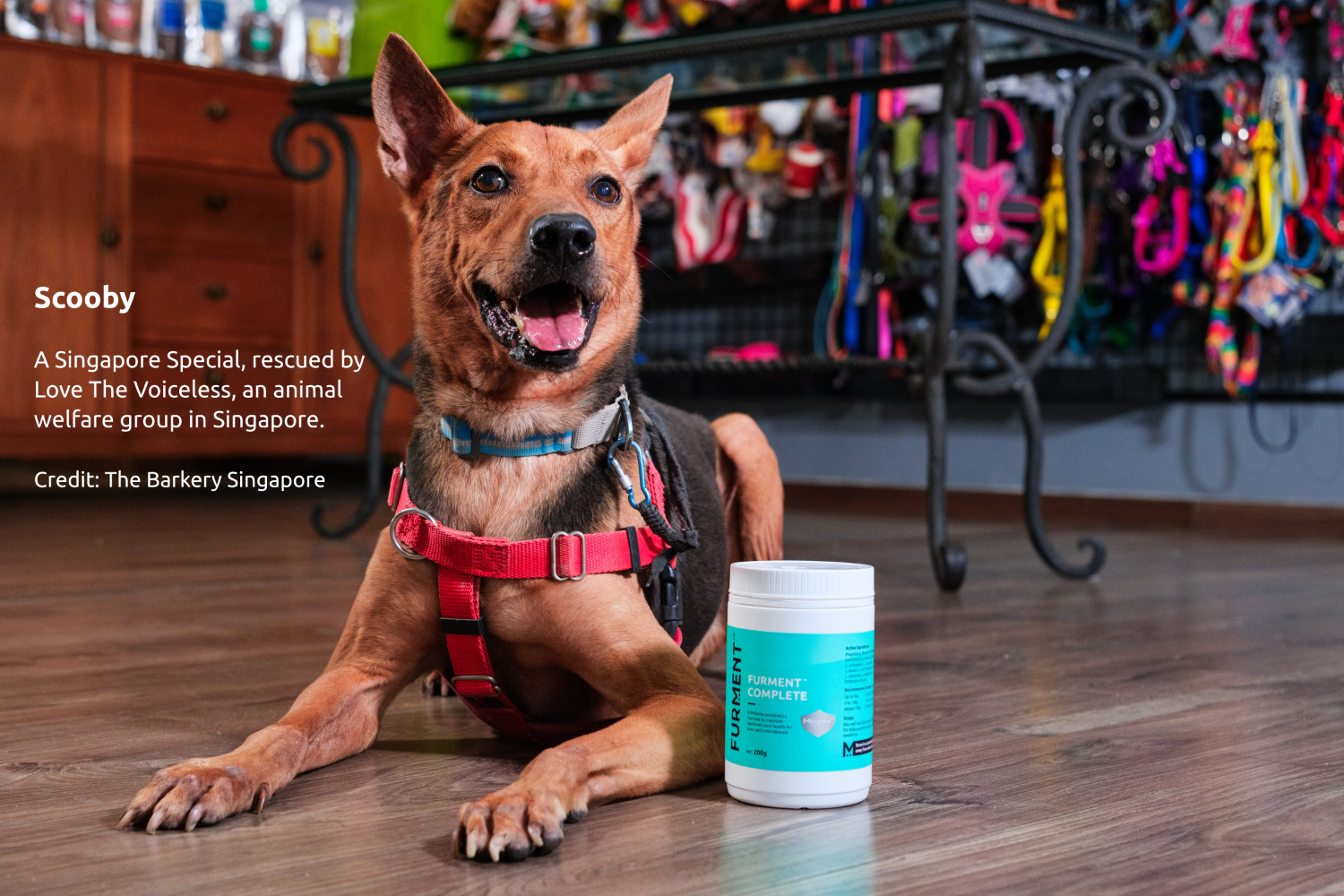
A balanced and healthy gut microbiome are crucial for maintaining optimal gut health and stool consistency in companion animals.
FURMENT COMPLETE provides pet owners this gut microbiome solution. Mix the 3-in-1 Prebiotics + Probiotics + Postbiotics powder into daily meals of your beloved pet, fix the gut and say bye to soft stools.
References
- Lin, CY., Jha, A.R., Oba, P.M. et al. Longitudinal fecal microbiome and metabolite data demonstrate rapid shifts and subsequent stabilization after an abrupt dietary change in healthy adult dogs. anim microbiome 4, 46 (2022). https://doi.org/10.1186/s42523-022-00194-9
- Huang Z, Pan Z, Yang R, Bi Y, Xiong X. The canine gastrointestinal microbiota: early studies and research frontiers. Gut Microbes. 2020 Jul 3;11(4):635-654. doi: 10.1080/19490976.2019.1704142. Epub 2020 Jan 28. PMID: 31992112; PMCID: PMC7524387.
- Ji J, Jin W, Liu S-J, Jiao Z, Li X. Probiotics, prebiotics, and postbiotics in health and disease. Medcomm. 2023; 4:e420. http://doi.org/10/1002/mco2.420
- Front. Nutr., 03 January 2022. Sec. Nutritional Immunology. Volume 8 – 2021 | https://doi.org/10.3389/fnut.2021.634897
- Liang B, Xing D. The Current and Future Perspectives of Postbiotics. Probiotics Antimicrob Proteins. 2023 Dec;15(6):1626-1643. doi: 10.1007/s12602-023-10045-x. Epub 2023 Feb 10. PMID: 36763279; PMCID: PMC9913028.
